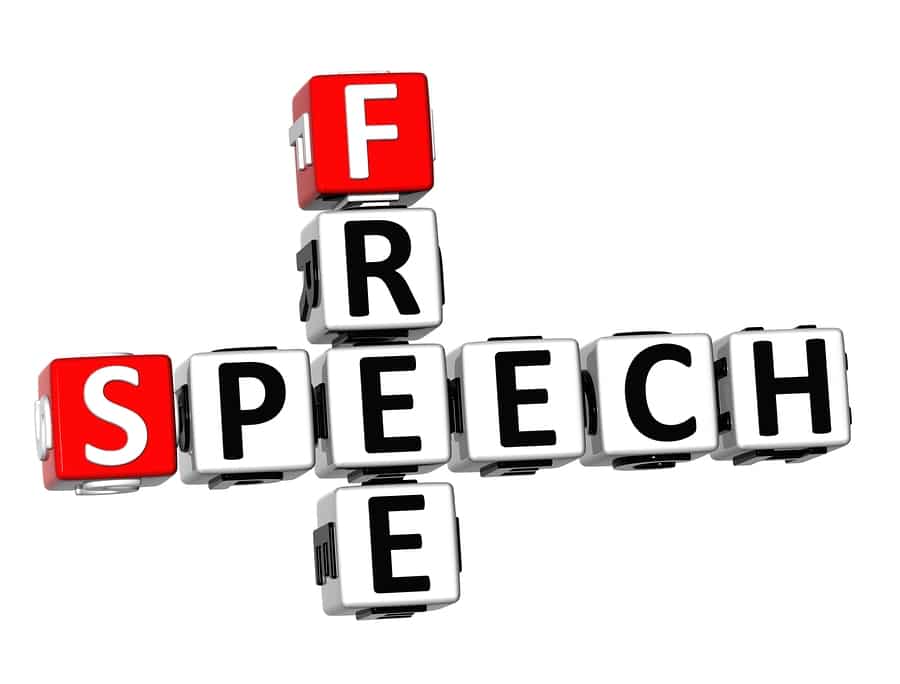Several months ago the Indiana Court of Appeals addressed a case, Daniel Brewington v. State of Indiana, and affirmed the trial court’s criminal conviction of a blogger who voiced his opinions regarding a recent family law court decision that was unfavorable towards him.1 Mr. Brewington was convicted of intimidating a Judge and obstruction of justice, following his comments online about the outcome of his family law case.
Husband/Blogger and Wife were married in 2002 and divorced in 2007, the couple had two (2) children together. During the divorce proceedings the couple vehemently disagreed on the issue of custody of the children, and ultimately submitted to a Custody Evaluation. Father/Blogger received what he believed were extremely unfavorable results following the evaluation and the ultimate court order, so he took to the internet to voice his opinions regarding the custody evaluator, and the trial court judge. Many comments on Father’s blog posts accused both the custody and evaluator of unfair practices, including concealing evidence, being malicious, and Father called out to the blogging community to support him in reporting the custody evaluator and judge for unethical behavior.
The Court of Appeals’ opinion sparked considerable controversy in Indiana, as it demonstrated the rather blurry the lines between constitutionally protected free speech and prohibited criminal threats (“true threats”).
The Indiana Supreme Court granted transfer of this case, and reversed the Court of Appeals’ in part. The Indiana Supreme Court began its opinion by stating:
The United States and Indiana constitutions afford sweeping protections to speech about public officials or issues of public or general concern, even if the speech is intemperate or caustic. But there is no such protection for “true threats”—including veiled or implied threats, when the totality of the circumstances shows that they were intended to put the victims in fear for their safety. Fear for one’s reputation is often the price of being a public figure, or of involvement in public issues. But fear for one’s safety is not.2
This initial opening statement elucidates the distinction between voicing one’s personal opinion about potentially unfair treatment in court proceedings, and draws the line between free speech and criminal threats, which are unprotected types of speech. The Indiana Supreme Court recognized the policy and purpose underlying the right to free speech; to ensure that debate on public issues is uninhibited. Certainly voicing one’s concern about the fairness in dolling out justice by a political figure (judge) would be protected. However, Mr. Brewington’s actions crossed the line beyond open political debate about a public issue and public figure, into the realm of true and credible threats, which is criminal.
The Indiana Supreme Court concluded that it is Constitutional and a citizen’s right to comment on, criticize, or even ridicule a judge’s decisions and others in the judicial system. However, Mr. Brewington’s language went far beyond criticism and ridicule. The Indiana Supreme Court even stated that Mr. Brewington’s statement that the judge and doctor were “crooked child abusers” was constitutionally protected speech. But, Mr. Brewington carried on by stating that he had guns and knew where the judge and doctor lived, and proceeded to make similar statements over time, showing actual malice, and intent, which the courts found amounted to a true threat that is not criminally protected.
Thus the Indiana Supreme Court affirmed the Court of Appeals’ affirming of several counts of intimidation and obstruction of justice regarding the judge’s wife. However, reversed the Court of Appeals, and affirmed the trial court’s convictions for several other counts, involving the judge, judge’s wife, and doctor.
Often the issues of social media interact with the highly emotional time in any person’s life when going through a divorce or child custody dispute. Because of this, we often caution and talk to clients about how to be responsible and conscientious as to what comments are posted online, especially when emotions are at an all time high. While free speech is a tenant of the US Constitution, and Indiana Constitution one must consider that just because speech may be free, it may not always be wise. Additionally, one must carefully consider the type of speech he or she is publishing on social media or otherwise, as not ALL speech is protected, such as the true threats Father/Blogger made against the custody evaluator and judge in this case.
We hope that this blog post has been helpful in how social media and the right to publish one’s opinion may interact and cross over into unprotected speech. Ciyou & Dixon, P.C. practices throughout the state of Indiana. This blog post was written by attorney, Lori Schmeltzer.
This is not intended to be legal advice. If you have questions or concerns about your specific case, CIYOU & DIXON, P.C. can help evaluate your specific case. This blog post was written by Attorney, Lori B. Schmeltzer.








